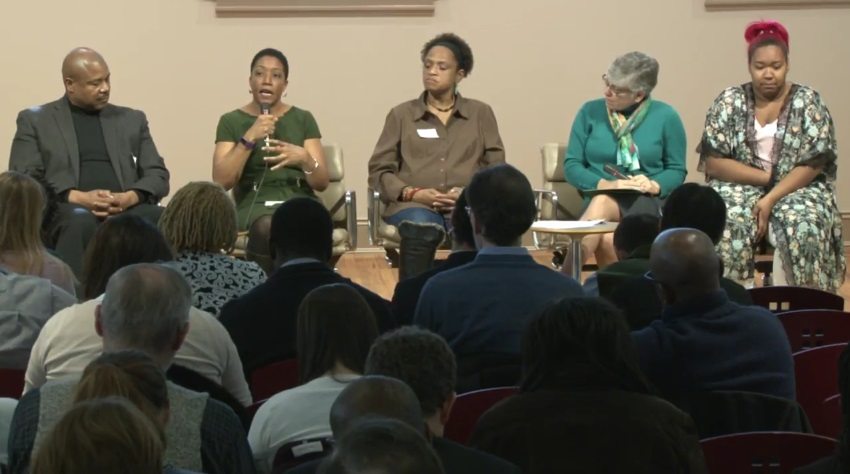District residents, government officials and nonprofit representatives gathered on Jan. 31 to discuss the impact of potential demands from the federal government on the city’s 2018 budget.
The event, Progress Amidst Uncertainty, was organized by the nonprofit D.C. Fiscal Policy Institute to learn about the needs of the city and the residents who use its services well ahead of Mayor Muriel Bowser’s budget proposal, which is due this spring.

Economic experts Jared Bernstein, senior fellow at the Center on Budget and Policy Priorities and former chief economist and economic adviser to Vice President Joe Biden, and Executive Director of D.C. Fiscal Policy Institute Ed Lazere discussed the impact of the budget on the District and the current limitations D.C.’s fiscal policy places on the budget.
Bernstein urged District leaders to be mindful of low-income families and not adhere to President Donald Trump’s trickle-down economic proposals. It is remarkable that 96 percent of D.C. residents “rejected Donald Trump,” Bernstein said.
“Here in the city, here in the District we have an asset that nobody else has,” he said. “We have a huge majority who represent what I’m calling a bastion of rationality, a bastion of people in support of economic justice, folks who understand that process of policy, of legislation, of what it takes to get from here to there, folks who understand the plight that nonwhites face in today’s economy.”
According to Bernstein, the cost of economic justice could be tested by changes in federal spending. Lazere added that policymakers must counter tax cut triggers, policies requiring that surplus dollars be put into savings and a lack of budget cushioning in case of federal cuts, all current D.C. policies that are issues facing the 2018 budget.

Safety-net services are crucial, even for other service providers, according to panelist Lecester Johnson, CEO of the Academy of Hope Adult Public Charter School.
“The hardest part of our job as adult educators is not teaching people to read write and do math,” Johnson said. “We lose adults because housing falls apart, there’s food insecurity.”
Nineteen-year-old Keyla Ryland, who also spoke on the panel, described going through high school while her family was homeless. She spoke to the determination it takes to simply get by, despite public misconception that people in poverty seem to “manage fine” without services. Panelist George Jones, CEO of Bread for the City, emphasized health care coverage as a necessary service, not just “a nice thing to do.”
“The challenges that people of color have experienced in this country are so long-standing,” Jones said. “Often we look for solutions that are based on the individual, but I want to reiterate that those kinds of disparities are generated by our system, not by individuals.”
Assistance programs are often necessary to break a cycle of poverty, according to panelist Angela Hodges, who credits resources like Medicaid for helping her overcome self-destructive behaviors earlier in life.
“If it hadn’t been for the groups I attended such as the Women’s Collective, which helped me go from denial to acceptance and getting the treatment I needed to survive, I wouldn’t be sitting here today,” said Hodges, who lives in a residential community for homeless women who are HIV-positive. “We don’t just take and take. We know how to give back and help.”
Bernstein said his hope for the event was to outline the progressive agenda that D.C. policymakers will have to adopt to address low-income residents’ needs while responding to federal pressures.
“I want to take our 96 percent asset, I want to take our kick-ass agenda and I want to work with this awakened opposition to make that not just a D.C. agenda but the national agenda,” Bernstein said.








